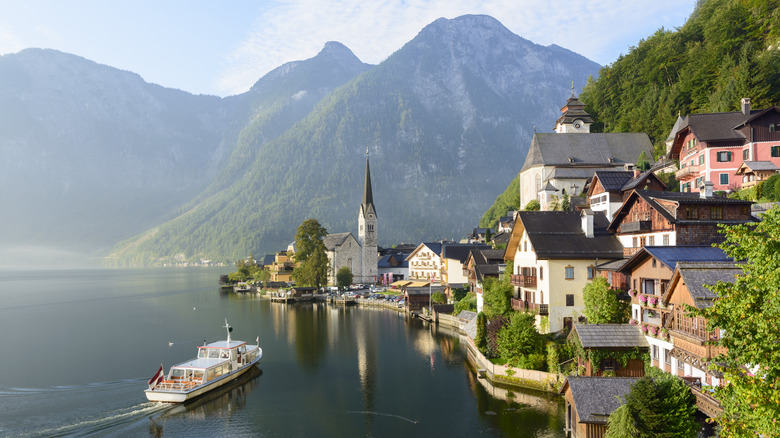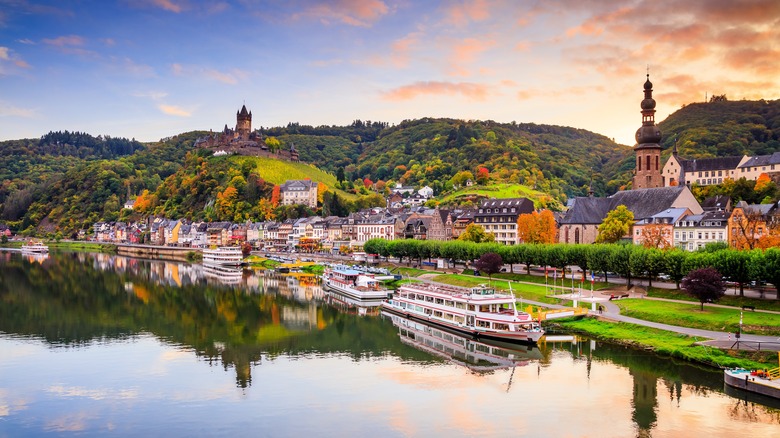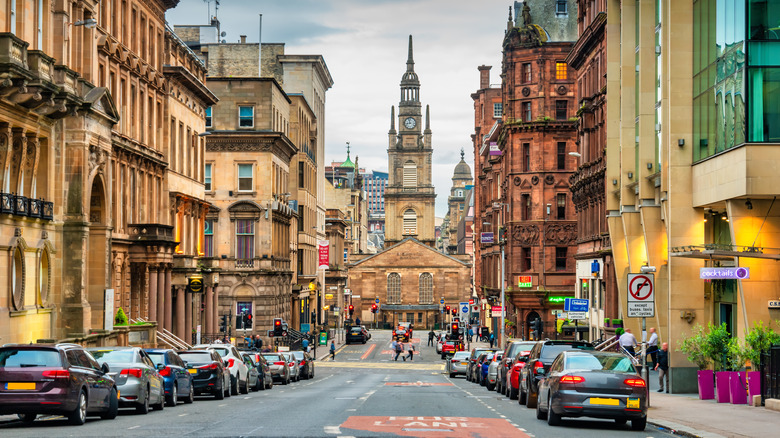The Hidden Gem Spots Rick Steves Recommends Instead Of These Tourist-Infested Ones
European travel expert Rick Steves has a lot of great tips, but his most valuable advice may center on adjusting your mindset rather than packing well or saving money. In an interview with Journey Woman, Steves expressed concerns that social media drives travelers to the same iconic landmarks to get identical photos as those taken by every other tourist who came before them. Steves sees meeting different kinds of people, trying new things, and leaning into the differences between where you come from and the places you visit as the goal of traveling — and that means heading to destinations that locals frequent, not tourist hot spots.
You can try this approach by skipping classic destinations like Madrid or Lisbon and choosing what Steves calls "second cities," like Porto or Cordoba. It can also mean doing some more research to find places that have the same appeal as some of the most popular places but that get fewer tourists, like choosing to visit beaches on the Peloponnesian Peninsula rather than going to busy Santorini or even swapping out big cities like Salzburg for nearby small towns like Hallstatt (pictured) which have the same great views and way less tourists.
Avoid the biggest tourist traps and choose local favorites
Rick Steves has called out big tourist traps that don't have much to offer travelers looking for authentic experiences on his website. According to Steves, the tourism industry essentially created many well-known destinations to sell stereotypes about their respective countries to visitors eager to find an exciting destination.
For example, in Germany, Steves says that the Rhine River has become a staple for visiting tourists eager to see castles rising from the mountainside. While an undoubtedly gorgeous region, Steves recommends swapping it for the area around the Mosel River (pictured). Steves explains that although it doesn't see much tourism compared to more popular German spots, the Mosel Valley resembles what people imagine when they think about their perfect trip along the Rhine. It features a beautiful river winding around vineyards and castles.
For those seeking authentic experiences, Steves suggests doing what the locals enjoy rather than pursuing activities catered to tourists. Rick Steves suggests having authentic dining experiences by eating at family-owned restaurants in quiet neighborhoods. You might also want to check out local events, like a soccer match, religious service, or street market, instead of choosing places you've heard of before.
Swap the most famous cities for second cities
Instead of visiting the most famous cities in Europe, you might want to swap in some less popular but still fascinating and beautiful options. Steves has dubbed these locations "second cities" because they are more likely to be the second largest or second most popular. They might not be as famous, but they often contain many of the same cultural experiences as their touristy counterparts without forcing visitors to fight the crowds. "While lacking the popularity and the bucket-list sights, Europe's second cities tend to enjoy a creative edge, a strong civic spirit, a Rust Belt toughness, fun-loving eateries with cutting-edge menus, entertaining street art," Rick Steves explained in an article for The Washington Post.
Sometimes, these second cities may even provide a more authentic experience because they don't focus on travelers as much. They might also cost less to visit, especially if you follow Rick Steves' advice for finding budget accommodations. Steves has suggested visiting Glasgow (pictured) over Edinburgh, Lyon or Marseille instead of Paris, Antwerp instead of Brussels, and cities like Manchester or Birmingham rather than London.


